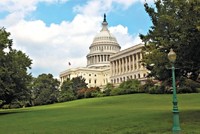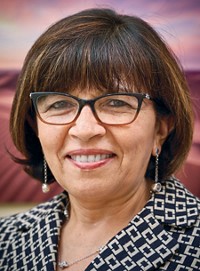Advertisement
Grab your lab coat. Let's get started
Welcome!
Welcome!
Create an account below to get 6 C&EN articles per month, receive newsletters and more - all free.
It seems this is your first time logging in online. Please enter the following information to continue.
As an ACS member you automatically get access to this site. All we need is few more details to create your reading experience.
Not you? Sign in with a different account.
Not you? Sign in with a different account.
ERROR 1
ERROR 1
ERROR 2
ERROR 2
ERROR 2
ERROR 2
ERROR 2
Password and Confirm password must match.
If you have an ACS member number, please enter it here so we can link this account to your membership. (optional)
ERROR 2
ACS values your privacy. By submitting your information, you are gaining access to C&EN and subscribing to our weekly newsletter. We use the information you provide to make your reading experience better, and we will never sell your data to third party members.
Policy
ACS Updates Its Policy Statements
Society calls for action on job creation, chemicals management, and climate change
by Susan J. Ainsworth
February 28, 2011
| A version of this story appeared in
Volume 89, Issue 9
The American Chemical Society has issued two new official policy statements that outline measures aimed at creating new science jobs and improving chemicals management and regulation. In addition, the society has revised four other statements, including one on climate change, and renewed one statement without revision.
Drafting of two of the policy statements—those relating to climate change and to ensuring a U.S. business climate that empowers innovation and job creation—involved an unprecedented level of input from groups including ACS committees, governance, and members.
Representing the interests of the society’s more than 163,000 members, the policy statements “serve as our calling card,” says Ray Garant, assistant director of public policy in the ACS Office of Public Affairs (OPA), which is part of the Office of the Secretary & General Counsel. “They empower both staff and members to speak on behalf of the society in an informed and detailed way, allowing them to be more effective in the public policy arena.”
The policy statements form the basis for advocacy with federal and state governments, says William F. Carroll, chair of the ACS Board Committee on Public Affairs & Public Relations (PA&PR), which has the authority to approve statements. “When OPA issues an alert to the Act4chemistry Network, a group of 15,000 members who have expressed interest in participating in ACS advocacy, it is based on the positions in these statements applied to action currently under consideration by the government.”
The 28 current statements, which have extendable three-year lifetimes, are available on the ACS website at www.acs.org/policy.
Knowing that the ACS position statement on climate change was set to expire at the end of 2010 and that there had been significant changes in the debate around climate change since ACS last considered the subject three years ago, the Joint Board-Council Committee on Environmental Improvement (CEI) began its efforts to update the climate statement early. At the fall 2009 ACS national meeting in Washington, D.C., “we identified a process and an initial writing team,” according to Martin A. Abraham, chair of CEI. “We developed a plan that would allow substantial member input so that we could be fully prepared to complete the update following the fall 2010 ACS national meeting in Boston.”
Also during the fall 2009 ACS national meeting, a group of current and former ACS members began soliciting signatures for a petition that proposed new language for a society position and provided input on how they thought the process to revise the climate statement should be structured.
The petition urged “the ACS Board of Directors to appoint a group of senior scientists, without vested interest, to revisit the science behind climate change in light of new scientific findings instead of relying on the report of the Intergovernmental Panel on Climate Change,” according to Peter Bonk, a former chair of the ACS Division of Small Chemical Businesses, who led the effort to start and circulate the petition.
Those behind the petition, which took the form of an open letter to the ACS Board, also felt that ACS should not take “a position on the controversial topic” of climate change without hearing from members on all sides of the issue, Bonk says. He delivered a final version of the letter, which was signed by 150 people, to ACS Executive Director and Chief Executive Officer Madeleine Jacobs on Feb. 1, 2010.
Because ACS already has a policy development process that involves experts such as those serving on CEI and because the review was already under way, the board did not appoint an additional group, Garant says. Instead, as it conducted its review and drafted the new climate statement, CEI “went out of its way to add extra steps to the process to make sure that it was seeking the widest possible input from the membership,” he says.
During the summer of 2010, CEI collected comments from more than 500 members, including many of the petitioners, via the ACS Network. Those members sent more than 100 references to websites, books, review articles, scientific papers, and reports on the science of climate change, Garant says. Many of the respondents “were concerned about climate change and supported ACS policy involvement,” Garant says. “However, others were skeptical of the science related to climate change and felt ACS should not get involved unless it would be in opposition to the position expressed in the prevailing national and international scientific reviews.”
To gather additional information for drafting the new statement, CEI worked with 2010 ACS President Joseph S. Francisco to host a climate-change forum at the fall ACS national meeting in Boston (C&EN, Aug. 30, 2010, page 3). The forum, attended by several hundred ACS members, featured “experts in the field, including a global-warming skeptic,” Abraham says. “The audience participated in a lively discussion to express their views.”
Weighing all this input, CEI drafted a new statement on global climate change that calls for action on reducing greenhouse gases and recommends adaptation strategies for dealing with climate change. It also encourages continued funding and research on the effects of climate change and emphasizes the importance of educating the public on the issue.
“In the end, we developed a statement that we believe accurately reflects the state of knowledge on the subject, acknowledges the views of a majority of our members, and provides ACS with a clear statement on appropriate actions in response to this complex technical challenge,” Abraham says.
As with the revised climate-change policy statement, the drafting of the new statement on ensuring a competitive U.S. business environment involved many within ACS. Working through two board committees—PA&PR and Professional & Member Relations—the ACS Board of Directors asked for input from more than two dozen committees to get ideas for the draft. Responding to the urgency of the situation in light of the current economy, Garant says, “the board reached out very widely within governance to put together a statement in only six months.”
Although the society has had a position statement on innovation and competitiveness “and we have been very active in advocating for research and technology and science education, we have had less to say about ensuring an environment where innovation can thrive,” which is important to creating new jobs, Garant adds.
“We knew members were concerned about the ongoing reengineering of the pharmaceutical industry and employment in chemistry generally,” says PA&PR’s Carroll. “We felt that the best way to address that issue was to advocate measures to make the U.S. the best place in the world to locate science work—and that’s what is in the statement.”
Indeed, the statement supports investment in a talented workforce through education and training. It also calls for long-term commitments to basic research and technology development and backs development of a sustainable infrastructure for innovation.
The statement addresses tax issues, such as “making the tax credit for research permanent and rationalizing corporate tax rates to be more competitive with countries that have an aggressive, business-friendly tax policy, like Ireland,” Carroll says.
In addition to the business-climate statement, the society issued another new policy statement, which focuses on chemicals management and regulation.
The society has long been interested in the appropriate use of science in the drafting of regulatory policy, and it sensed that it needed to get more involved in this issue as a result of public policy discussions about the Toxic Substances Control Act; environmental, health, and safety issues related to nanotechnology; and concerns related to chemicals such as bisphenol A, Garant says. Consequently, CEI recommended that the board create a statement that would “put the society on record to allow it to play a larger role in these debates.”
The effort to draft the chemical management and regulation statement was rigorous. It involved collaboration “between our academic and industrial members to develop a representative position that took into account many of the competing interests within ACS,” including academics, regulators, and those in industry, according to CEI’s Abraham.
The statement addresses the issues of public confidence, risk assessment, the responsibilities of industry, and sustainability. It also makes specific recommendations on incorporation of green chemistry principles, on guidelines for the development of data used to assess risk, and on the education and training of chemical scientists to uniformly prepare them to understand toxicity and exposures associated with chemicals.
Last year, PA&PR also made significant modifications to the statement concerning access to high-quality science. The updated statement highlights ACS support for using sustainable publishing models to provide universal access to scientific research. It also backs a set of principles related to the practice of scholarly publishing that is outlined in the “Brussels Declaration on STM Publishing,” a document set forth by the International Association of Scientific, Technical & Medical Publishers.
In addition, statements relating to biomonitoring and science education policies received minor updates that aligned them better with current policy issues and directions, according to Garant. And the 2007 version of the statement on employment nondiscrimination was extended with no changes.
Taken as a whole, the current group of ACS policy statements resulted from an unprecedented level of collaboration not just between society governance and committees, but also with members, Garant says. He encourages ACS members to continue to play a role in shaping future policy statements. “We are certainly looking for input from our members as we begin to work on issues that range from sustainability to the teaching of evolution,” he says.






Join the conversation
Contact the reporter
Submit a Letter to the Editor for publication
Engage with us on Twitter